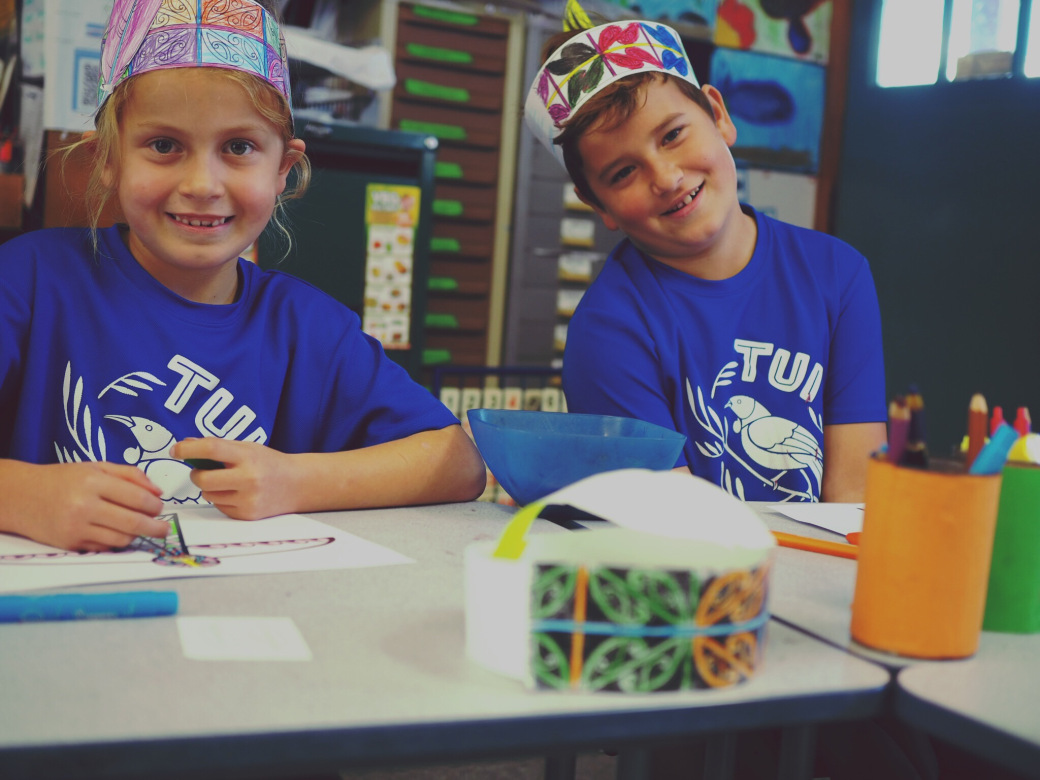2024 Term dates
Term 3: 22 July – 27 September
Term 4: 14 October – 17 December

Frequently Asked Questions.
What are the schools break times?
School Begins – 8.50am
Brain Food Break – 10.00am (This is not a set time. Each class will have their brainfood break when it suits their learners on any given day.)
Play Break – 11.00am – 11.30pm
Lunch Time – 1.00pm – 1.40pm
School Finishes – 3.00pm
How do Bus Lists run?
Each student at Ruawai Primary is on either a bus list, walking list or pick up list. We keep a daily record of this.
If your child is on the Pick Up list, it’s important that you check in with the teacher so that she can mark this off when you pick up your child.
If your child is going home an alternative way to which they would usually be going, then please ensure that you contact Michelle in the school office before 2.30 pm so that these changes can be made to the rolls.
If plans suddenly change and you are unable to notify the office, then please make sure you go to the office at 3.00pm to let Michelle know, or see the teacher in charge of the bus line so this can be marked off.
What is the schools bank account number?
Ruawai Primary School
Board of Trustees Imprest
12 3098 0266694 00
How do I set up an automatic payment?
You have the option of setting up automatic payments to the school bank account which can cover uniform and stationary expenses. This will need to be arranged with Michelle in the office.
As a parent, how do I make an appointment with the school principal?
Appointments can be made through ringing Michelle in the office 09 439 2307, or emailing the office at admin@ruawai.school.nz.
How do I report an absence?
There are two options for reporting your child’s absence.
Phone 439 2307 and leaving a message stating the name of your child and the reason for their absence.
Text 021 0267 4257 with the name of your child, and reason for absence.
How do the Year levels work in New Zealand schools?
All children in New Zealand are able to enrol in a primary school when they turn 5 years old. Legally, they do not have to enrol at school until they turn 6 years old, however, the majority of children start school on, or close to, their 5th birthday.
Children with a birthday from January 1st to March 31st will start school in “Year 1”.
Children with a birthday from April 1st to the end of the school year (December), will start school as a “Year 0”. There can sometimes be circumstances where an April child may be classified as a “Year 1”.
Children who have a birthday after the end of the school year – around mid-December, will begin school at the start of the new school year and will be in “Year 1”.
This example might help explain it better:
Zoe’s birthday is February 1st. She goes into Mrs Hewetson’s class and she is called a Year 1. Maddy’s birthday is May 1st. She also goes into Mrs Hewetson’s class when she starts school, but she is called a Year 0. At the beginning of the next year, Zoe will be classified as a Year 2 and Maddy will be classified as a Year 1.
Following the introduction of National Standards, schools are now required to report on the progress of students in the early primary years, according to the length of time they have been at school, e.g. 6 months, 1 year. Using the example of Zoe and Maddy, if they were both to receive an end of year report against the same expectation (e.g. to be Reading at Level 12), it would be unfair to expect Maddy to have made as much progress as Zoe, since they would not have been at school for the same amount of time. The Ministry of Education suggests that after the first 3 years of schooling, the difference in starting dates no longer makes a significant difference to a child’s achievement.
If a New Entrant child does not start school on their birthday (e.g. they are 5.5 years old when they start), their year level will more than likely be based on the time they have spent at school, regardless of their birthday, for example, Ethan’s birthday is the 24th February, but he doesn’t start school until the 1st June, he will be classified as a Year 0 when he starts.
What is most important to remember, is that the New Zealand curriculum is not divided into years of work that children complete in a set order. All children are taught at the level they are working at. Some junior school children are very good at reading and need extension, some senior school children might need a lot of support with maths. Their “Year” doesn’t restrict them from more challenging learning, or prevent them from getting help if they are struggling. Teachers at Ruawai Primary School are very skilled at working out the next learning steps for every student. For some parents, this may be quite different to when you were at school and everyone was expected to learn the same thing at the same time.





